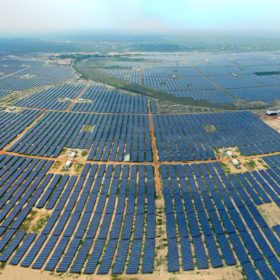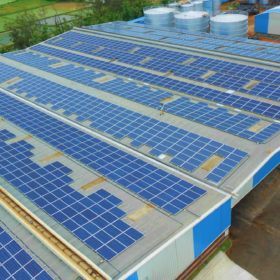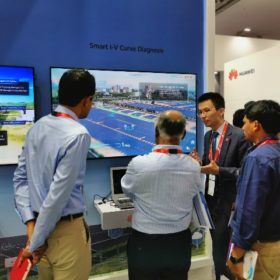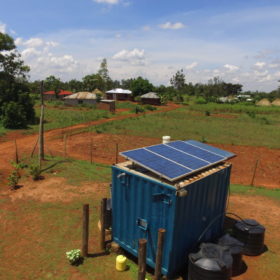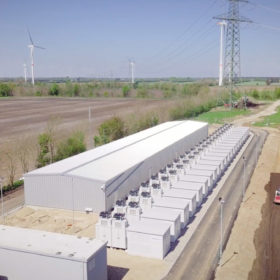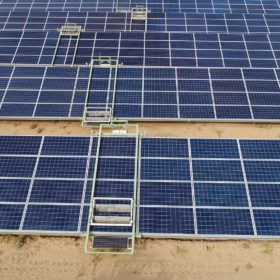India unveils indigenous fuel cell system that can replace polluting DG sets
The 5.0 KW fuel cell system—developed by Council of Scientific and Industrial Research in partnership with Thermax Limited and Reliance Industries Limited—achieves greater than 70% efficiency, which otherwise may not be possible with other energy sources.
NLC completes 709 MW solar for Tamil Nadu utility
With commissioning of the balance 351 MW of projects in four districts of Tamil Nadu, the state-run power producer has completed the entire 709 MW solar capacity awarded by utility Tamil Nadu Generation and Distribution Corporation.
RSRTC tenders 4 MW ‘RESCO mode’ rooftop solar
The projects shall come up in Rajasthan State Road Transport Corporation’s premises or depots in selected districts of Rajasthan. Bidding closes on October 24.
Haryana tenders ‘RESCO mode’ solar for government schools
The estimated project cost for 25 years is Rs 1500 crore. Bids can be submitted till October 21, along with Rs 50 lakh as bank guarantee.
Huawei bags 860 MW contract for FusionSolar Smart PV solution
The Chinese communications giant and inverter maker has signed an 860 MW contract with solar developer Adani Green Energy to supply its FusionSolar Smart PV Solution 6.0 with SUN2000-185KTL-INH0 inverter.
Four off-grid clean energy projects chosen for India-US joint funding
A total of 168 expressions of interest were received by the Ministry of New and Renewable Energy in the second round of PACEsetter Fund programme. Out of these, projects by the Society for Economic and Social Studies, Customized Energy Solutions India, The Energy & Resources Institute and Raghavendra Suntech Systems were chosen for the award of grants.
Indian renewables leaders split over need for regulation
While some of the industry insiders gathered at REI 2019 have made predictable calls to be free of the restrictions imposed by regulators, others maintained policy support is crucial and audience members voiced concern about India’s lack of recycling rules.
Solar-plus-storage can boost investor confidence
A British study has found co-location of solar and storage may accelerate the deployment of profitable merchant renewable energy projects in the United Kingdom. The report predicts installed solar capacity in the U.K. could increase from around 13 GW next year to 19 GW in 2030 and 32 GW in 2040.
Tata Power commissions 150 MW solar capacity in Rajasthan
The plant—with Maharashtra State Electricity Distribution Co. Ltd as the offtaker—is the company’s first ISTS connected solar project.
Aligning infrastructure to accelerate Asia’s energy transition – Black & Veatch interview
Integrated power infrastructure offers an emerging investment opportunity in Asia as the region expands and adapts its energy mix to address sustainability and resilience goals. Narsingh Chaudhary and Mitesh Patel, of engineering, procurement and construction business Black & Veatch, tell pv magazine more.

